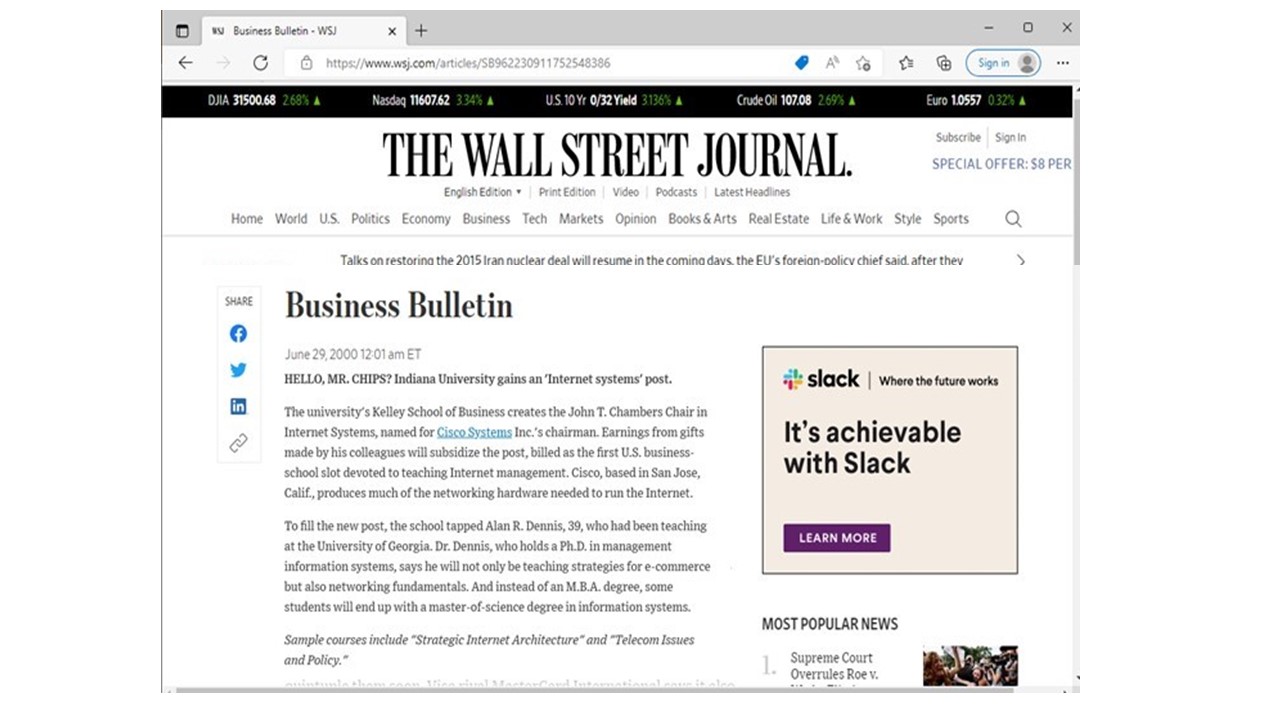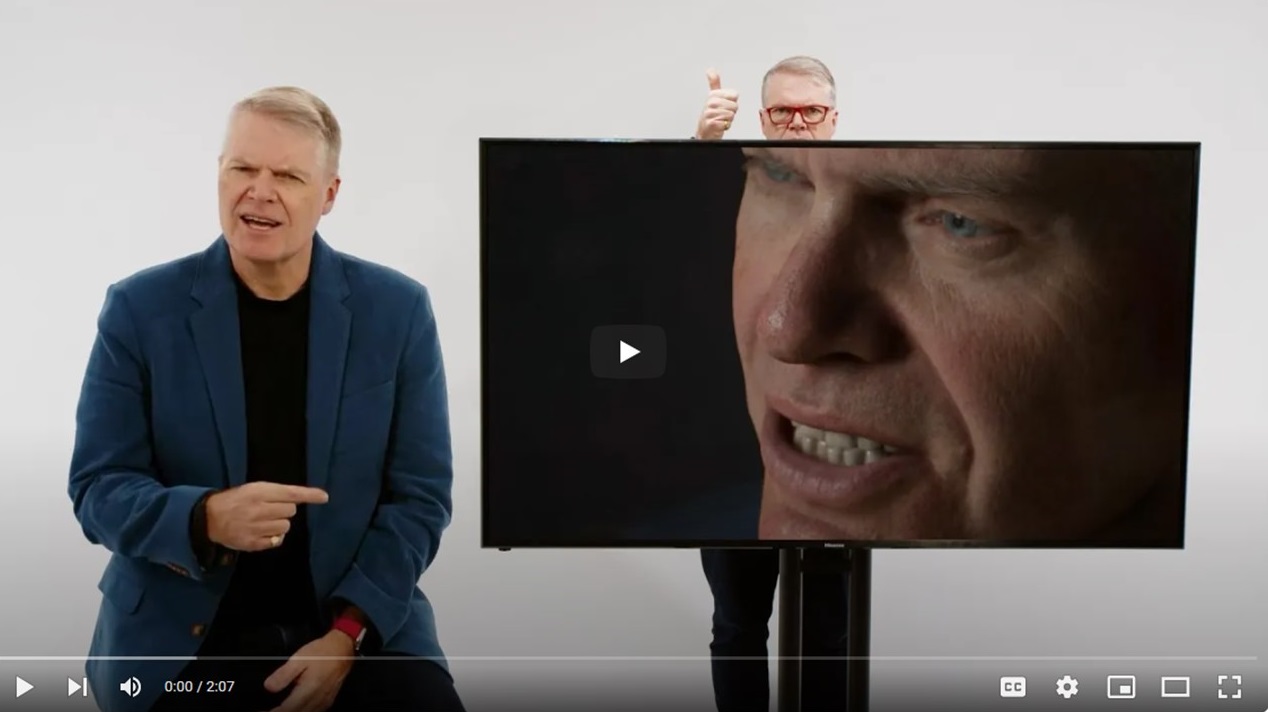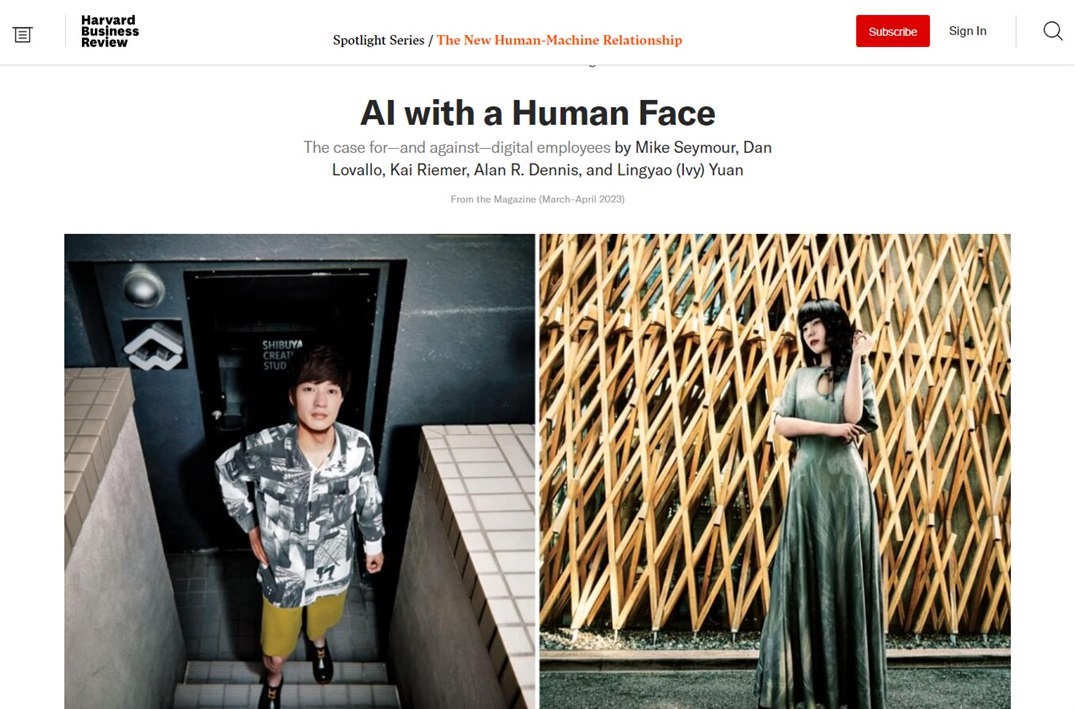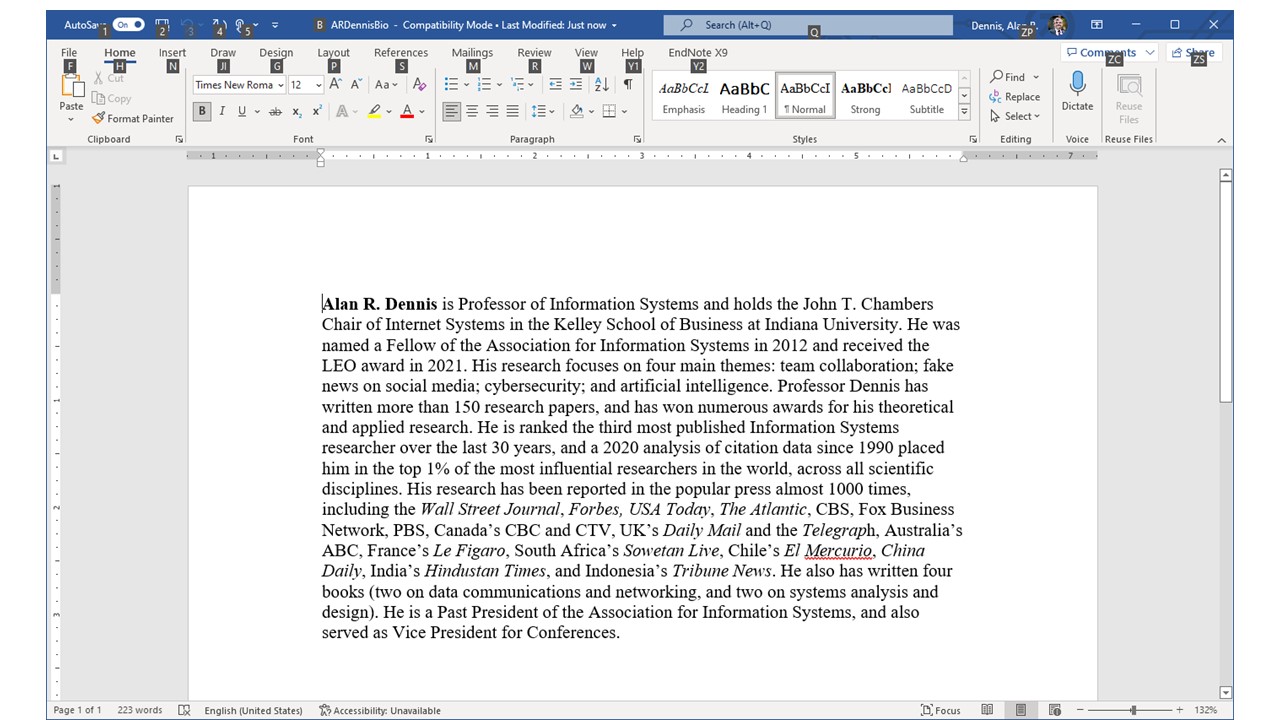Alan R. Dennis
Research
I have published more than 150 journal articles, book chapters, and conference papers in information systems, management, computer science, engineering, and psychology. I have won 20 awards for my research, including the AIS LEO Award, the highest honor in our field. I have been ranked among the top ten most productive IS researchers in the world for two decades, and in 2021, I was named as one of the top 1% most influential researchers in the world across all scientific disciplines. My work has received over 30,000 citations (h-index of 76) and has been reported in the popular press almost a thousand times including the Wall Street Journal, Forbes, USA Today, The Atlantic, CBS, Fox Business Network, PBS, Canada's CBC and CTV, and the UK's Daily Mail and Telegraph.
My research primarily uses behavioral research methods, most often experiments, either in the lab or online. I have also done qualitative research, survey research, and secondary data analysis with econometric methods. I was one of the co-founders of the Neuro IS research approach, which uses neurological methods such as EEG and fMRI to understand brain activity while using technology.
Like most faculty members, I have several different areas of research. My primary research focus is on user reactions to AI agents. I'm studying chatbots, as well as digital humans (chatbots with highly realistic faces and voices), such as Digital Mike. If Siri (or the last customer support chatbot you used) looked and sounded like a real person, would you like it more, or would it be unsettling? If you're interested, visit Soul Machines to talk with a digital human.
My second research area is fake news. Fake news is a mjaor societal crisis because (to quote John Mellencamp) people believe what they want to believe when it makes no sense at all. People believe fake news because the truth is unpleasant; people create fake news to make money and gain power by feeding these false beliefs. Fake news is a drug, so there are no easy solutions. I've worked with NewsGuard, a start-up which provides a browser plug-in that rates news web sites as trustworthy or fake.
My third research area is cybersecurity. More than half of all security breaches can be traced back to a single person failing to follow good security practices. Sometimes the failure is a mistake, but often people make poor decisions deliberately without intending to cause harm. The question is, how can we encourage users to follow good security practices?
My final research area is the collaboration technology that enables teams to work remotely over the Internet (e.g., Zoom, Google docs). My research focuses on team creativity, information exchange in decision making, individual cognition, and the effects of culture. We are investigating how team members accept AI team members.

Wall Street Journal
The Wall Street Journal had a brief front page story about my move to IU in June, 2000.





